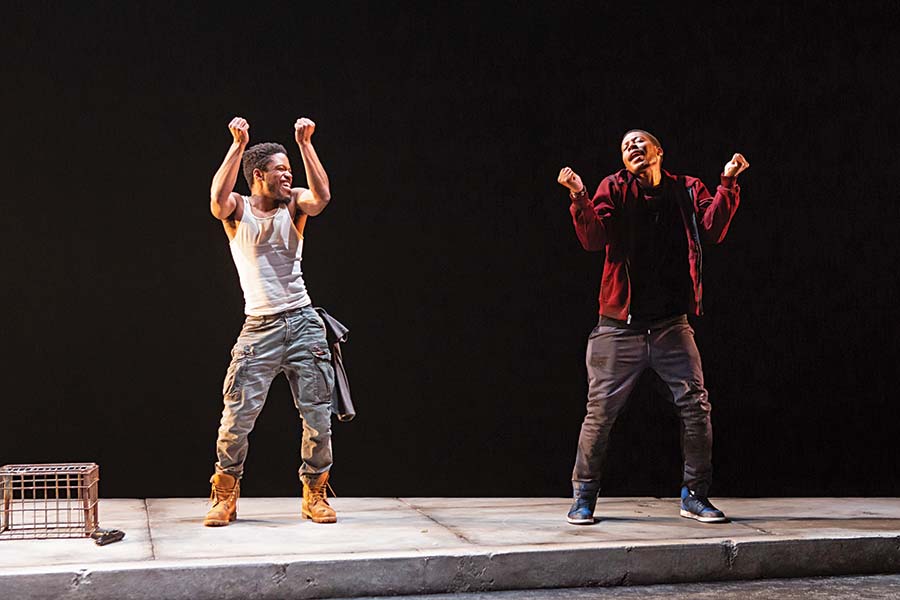Don’t Pass Us Over
I just finished reading Antoinette Nwandu’s excellent play Pass Over (Playscript, Sept. ’18). I have been reading American Theatre for almost 25 years, and in all that time I can’t remember a more relevant, edgy, and important play being published. I would love to see more social justice/race-related articles and plays in your magazine. As a biracial lesbian in this lily-white theatre community, I am very excited to know that your magazine recognizes the need to feature/showcase voices of color.
If publishing this work is your attempt to influence white, straight, and gay artistic directors across the U.S. to produce Pass Over, I fear you have not gone far enough. In this culture, we are consumed with race issues, yet they do not make it onto most stages. What more can you do to move regional theatre literary managers and artistic directors closer to what must be on the stage vs. what the audiences are comfortable with?
I thank you for including Pass Over in your pages. I beg you to do more.
Pandora Scooter
Playwright, solo show performer
New Brunswick, N.J.
Heartbreak and Healing
Thank you! You’ve spoken to my heart (Quiara Alegría Hudes’s “High Tide of Heartbreak,” Oct. ’18). I went to Tulane graduate school as a director. They wanted me to switch into design, like all the other women who tried to be directors there. After four years trying to prove I could be as male a director as anyone, I failed. They told me I was talentless as a director, despite—or perhaps because of—success at Williamstown Theatre Festival under Bonnie Monte’s guidance.
Traumatized, I eventually healed enough and started my own theatre company in Toronto. I didn’t have to justify my female style or hide my true interests. Rave reviews and shameful poverty followed. I loved it. Loved it like nothing else. Loved working with actors. Loved writing plays. Loved it with an ache I feel almost every day. And actors wanted to work with me. But I was so alone. Tired. Afraid for my future. Would I be on the streets soon?
The established theatre ignored me, and to be fair they frightened me. I didn’t want to be crushed again by their opinions about my interests. I didn’t want to defend myself intellectually. I had proven myself in the only way that matters. Audiences (and even reviewers!) stood up and applauded. But in the halls of established theatre lurked so many men and those who worshipped the masculine. All those egos, so much to protect. Theatre was dying and I thought I knew why, but they wanted to hold onto their shrinking power. Seven successful plays would never be enough for them to let me in.
Even today in the small town I live in, theatre people protect their kingdoms, keeping new ideas and “challengers” out. I have to do theatre alone to get to do it at all. Every day I long to practice my gift and my love, but I am not strong enough or rich enough or clever enough, or something. I understand the pain of a life in theatre. I just didn’t realize it wasn’t just me but actual very successful people like you too.
Thank you for telling me.
Brenda McFarlane
Playwright/director
Hurley, N.M.


